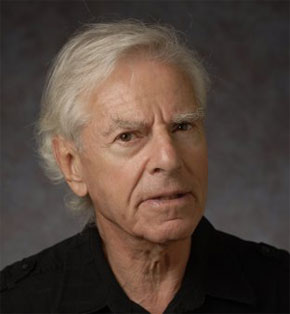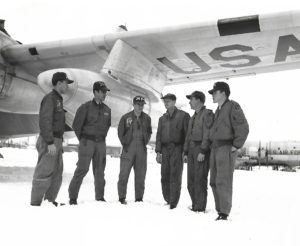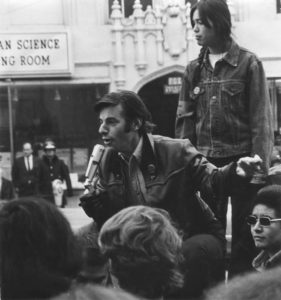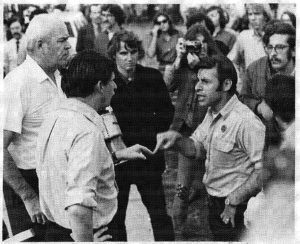Biography

One of America’s leading cultural historians, H. Bruce Franklin was the author or editor of nineteen books and more than 300 articles on culture and history published in more than a hundred major magazines and newspapers, academic journals, and reference works. He gave over five hundred addresses on college campuses, on radio and TV shows, and at academic conferences, museums, and libraries, and he participated in making four films. He taught at Stanford University, Johns Hopkins, Wesleyan, and Yale and retired as the John Cotton Dana Professor of English and American Studies at Rutgers University in Newark. Before becoming an academic, Franklin worked in factories, was a tugboat mate and deckhand, and flew for three years in the United States Air Force as a Strategic Air Command navigator and intelligence officer.
Franklin died peacefully at home on May 19, 2024. He lost Jane, his beloved wife and life partner of 67 years, in 2023. He is survived by his three children, six grandchildren, and one great-grandchild.

Franklin has published continually on the history and literature of the Vietnam War since 1966, when he became widely known for his activist opposition to the war. His pioneering course on the war and his book M.I.A. Or Mythmaking in America have had a major national impact, and he is co-editor of the widely-adopted history text Vietnam and America: A Documented History. Vietnam and Other American Fantasies, offers a sweeping vision of American culture into the 21st century.
Another area where Franklin’s work has achieved international distinction is the study of science fiction and its relation to culture and history. In 1961 he offered one of the first two university courses in science fiction, and his book Future Perfect played a key role in establishing the importance and academic legitimacy of the subject. His Robert A. Heinlein: America as Science Fiction won the Eaton Award for 1981; in 1983 he won the Pilgrim Award for Lifetime Scholarship of the Science Fiction Research Association; in 1990 he was named the Distinguished Scholar of the International Association for the Fantastic in the Arts; and in 1991 he was Guest Curator for the “Star Trek and the Sixties” exhibit at the National Air and Space Museum of the Smithsonian Institution.
Franklin’s first book, The Wake of the Gods: Melville’s Mythology, has been in print continually since 1963 and is regarded as a classic work of scholarship and criticism. He is a past president of the Melville Society, and continues to publish about Melville.
Prison Literature in America: The Victim as Criminal and Artist established Franklin as the world’s leading authority on American prison literature. His anthology Prison Writing in 20th-Century America is widely influential.
The Most Important Fish in the Sea: Menhaden and America shows how menhaden have shaped America’s national—and natural—history, and why reckless overfishing now threatens their place in both. The book has already led to the introduction of two bills in Congress.
War Stars: The Superweapon and the American Imagination has been widely hailed as a classic since its original publication in 1988. In 2008, he published a revised and expanded edition that sweeps through more than two centuries of American culture and military history, tracing the evolution of superweapons from Robert Fulton’s eighteenth-century submarine through the strategic bomber, atomic bomb, and Star Wars to a twenty-first century dominated by “weapons of mass destruction,” real and imagined. Interweaving culture, science, technology, and history, he shows how and why the American pursuit of the ultimate defensive weapon—guaranteed to end all war and bring universal triumph to American ideals—has led our nation and the world into an epoch of terror and endless war.







